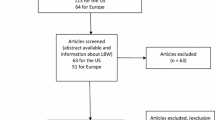Abstract
Mexican immigrants to the United States have better reproductive outcomes than do U.S.-born non-Latina whites. Explanations offered for this “epidemiologic paradox” include (1) poor outcomes among Mexican women may be hidden by their return to Mexico; (2) Mexican women may have a higher fetal death rate that alters the pattern of live birth outcomes; (3) Mexican women may have socioeconomic characteristics which, if properly measured, would explain the outcome; (4) Mexican women may have personal characteristics which would explain the outcome, if properly measured; (5) there may be ameliorative or salutogenic “protective” effects of culture; and (6) migration may be selective of healthier women who are thus more prone to positive outcomes. We test these explanations, with an emphasis on the last one, using a data set that combines reproductive histories and birth outcomes for Mexico-born women delivering in San Diego, California and Mexican women delivering in Tijuana, Mexico. These data are compared with U.S.-born Latinas and U.S.-born non-Latina Whites. Multivariate logistic regression analysis suggests that when controlling for birth history (stillbirths and miscarriages), socioeconomic characteristics (education and prenatal visits), personal characteristics (age, parity, time in area, history of family problems), and health characteristics (history of smoking, alcohol use, drug use, anemia, vaginal bleeding, urinary infection), the adjusted odds of a positive birth outcome (measured as a live birth of 2500 grams or more) is highest for women delivering in Tijuana, implying that migrants may not be so selective when compared to the country of origin. The number of prenatal visits was an important explanatory variable.
Similar content being viewed by others
REFERENCES
Williams RL, Binkin NJ, Clingham EJ: Pregnancy outcomes among Spanish-surname women in California. Am J Public Health 1986; 76:387–391
Singh GK, Yu SM: Infant Mortality in the United States: Trends, differentials, and projections, 1950 through 2010. Am J Public Health 1995; 85:957–964
Singh GK, Yu SM: Adverse Pregnancy outcomes: Differences between US-and foreign-born women in major US racial and ethnic groups. Am J Public Health 1996; 86:837–843
Rumbaut RG, Weeks JR: Infant health among Indochinese refugees: Patterns of infant mortality, birthweight and prenatal care in comparative perspective. Research Sociol Health Care 1989; 8:137–196
Weeks JR, Rumbaut RG: Infant mortality among ethnic immigrant groups. Social Sci Med 1991; 33:327–334
Rumbaut RG, Weeks JR: Perinatal Risks and Outcomes Among Low-Income Immigrants. San Diego: San Diego State University; 1992
Rumbaut RG, Weeks JR: Unraveling a public health enigma: Why do immigrants experience superior perinatal health outcomes? Research Sociol Health Care 1996; 13:337–391
Cohen BB, Friedman DJ, Mahan CM, Lederman R, Muñoz D: Ethnicity, maternal risk, and birth weight among Hispanics in Massachusetts, 1987–89. Public Health Rep 1993; 108:363–371
Zimmer-Gembeck MJ, Healfand M: Low birthweight in a public prenatal care program: Behavioral and psychosocial risk factors and psychosocial intervention. Social Sci Med 1996; 43:187–197
Alexander GR, Mor JM, Kogan MD, Leland NL, Keiffer E: Pregnancy outcomes of US-born and foreign-born Japanese Americans. Am J Public Health 1996; 86:820–824
Collins JW, Shay DK: Prevalence of low birth weight among Hispanic infants with United States-born and foreign-born mothers: The effect of urban poverty. Am J Epidemiol 1994; 139:184–192
Guendelman S: Mexican women in the United States. Lancet 1994; 344:352
Frisbie WP: The enigma of Mexican origin pregnancy outcomes. Annual meeting of the Population Association of American San Francisco: April, 1995
Nuñez Fernández L: Estimates of infant mortality for the northern border of Mexico. In: Weeks JR, Ham-Chande R, eds: Demographic Dynamics of the U.S.-Mexico Border. El Paso, Texas: Texas Western Press of the University of Texas, El Paso; 1992; PP 151–163
Stephen EH, Foote K, Hendershot GE, Schoenborn CA: Health of the Foreign-Born Population: United States, 1989–90. Advance Data from Vital and Health Statistics of the Centers for Disease Control and Prevention/NCHS 1994
Ojeda N: Condición Social de la Mujer y Salud Reproductiva en Tijuana. Tijuana, Mexico: El Colegio de la Frontera Norte; 1994
Cobas JA, Balcazar H, Benin MB, Keith VM, Chong Y: Acculturation and low-birthweight infants among Latino women: A reanalysis of HHANES data with structural equation models. Am J Public Health 1996; 86:394–396
Scribner R, Dwyer JH: Acculturation and low birthweight among Lations in the Hispanic HANES. Am J Public Health 1989; 79:1263–1267
Scribner R: Editorial: Paradox as paradigm-The health outcomes of Mexican Americans. Am J Public Health 1996; 86:303–305
Guendelman S, English PB: Effect of United States residence on birth outcomes among Mexican immigrants: An exploratory study. Am J Epidemiol 1995; 142:S30-S38
Rumbaut RG, Weeks JR: Children of immigrants: Is Americanization hazardous to infant health? In Fitzgerald HE, Lester BM, Zuckerman B, eds: Children of Color: Research, Health, and Policy Issues. New York: Garland; 1999
Guendelman S, Chavez G, Christianson R: Fetal deaths in Mexican-American, Black, and White non-Hispanic women seeking government-funded prenatal care. J Commun Health 1994; 19:319–330
Balcazar H, Aoyama C, Cai X: Interpretative views on Hispanics' perinatal problems of low birth weight and prenatal care. Public Health Rep 1991; 106:420–426
Balcazar H, Hartner J, Cole G: The effects of prenatal care utilization and maternal risk factors on pregnancy outcome between Mexican Americans and non-Hispanic Whites. J Nat Med Assoc 1993; 85:195–202
Molina CW, Aguirre-Molina M: Latino Health in the US: A Growing Challenge. Washington, DC: American Public Health Association; 1994
Hickey CA, Cliver SP, McNeal SF, Goldenberg RL: Low pregravid body mass index as a risk factor for preterm birth: Variation by ethnic group. Obstet Gynecol 1997: 89:206–212
Albrecht SL, Miller M: Hispanic subgroup differences in prenatal care. Soc Biol 1996; 43:38–58
Scribner RA: Infant mortality among Hispanics: The epidemiological paradox. JAMA 1991; 265:2065–66
Guendelman S, English P, Chavez G: Infants of Mexican immigrants: Health status of an emerging population. Med Care 1995; 33:41–52
Author information
Authors and Affiliations
Rights and permissions
About this article
Cite this article
Weeks, J.R., Rumbaut, R.G. & Ojeda, N. Reproductive Outcomes Among Mexico-Born Women in San Diego and Tijuana: Testing the Migration Selectivity Hypothesis. Journal of Immigrant Health 1, 77–90 (1999). https://doi.org/10.1023/A:1021880305237
Issue Date:
DOI: https://doi.org/10.1023/A:1021880305237




